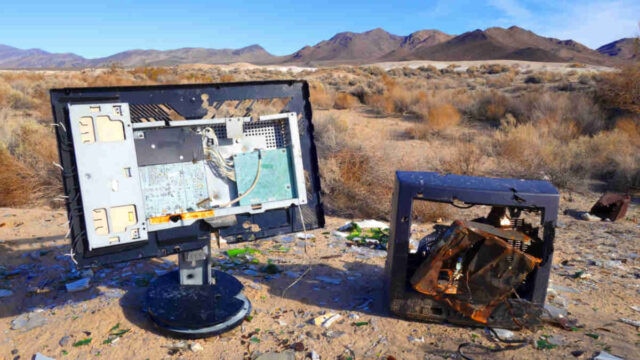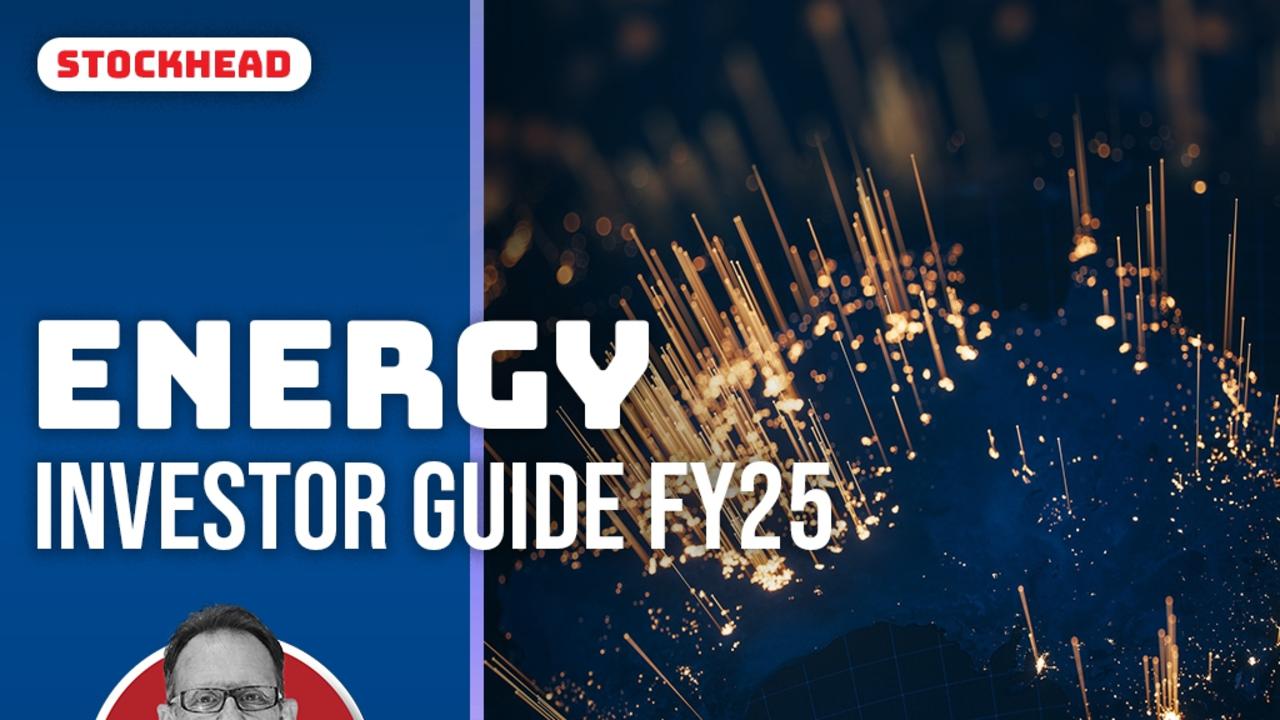The Ethical Investor: ASX stocks that are short-circuiting e-waste
E-waste is a huge – and growing – problem. These companies are working to close the circuit by recycling, and ethical investors can jump on board.

Electronic waste (e-waste) – discarded products ranging from mobile phones to computer, televisions and printers – is one of the fastest-growing waste streams.
Each year, four million computers and personal devices are purchased in Australia.
But only 10 per cent of e-waste is being recycled, with the rest finding its way to landfill. This startling statistic translates to more than 140,000 tonnes of electronic waste, contributing to a mounting crisis.
Franz Siasat, CEO of tech waste recycling company Zolo, says improper disposal of e-waste has a profound adverse effect on the environment.
“A substantial portion of this waste finds its way to landfills, where toxic metals such as lead, mercury, and cadmium can leach into the soil and water, posing a serious environmental hazard,” he said.
For the latest ethical investment news, sign up here for free Stockhead daily newsletters
“The presence of plastics in many e-waste items also contributes to greenhouse gas (GHG) emissions when incinerated, making it a significant driver of climate change.”
Recycling e-waste meanwhile has other benefits besides mitigating harm, as electronic devices contain valuable non-renewable resources including gold, silver, copper, platinum, aluminium and cobalt – all of which can be reused.
In Australia, the government has funded a National Television and Recycling Scheme (NTRS) that enables people to recycle e-waste for free.
As per the government website, individuals can access the NTRS scheme either by contacting their local council, or finding the scheme services listed on Planet Ark’s website at www.recyclingnearyou.com.au.
Investors, too, can join the push to limit e-waste, with several recycling stocks on offer.
Recycling stocks on the ASX
On the exchange, the biggest recycling companies are Cleanaway Waste Management (ASX:CWY) and Bingo Industries (ASX:BIN).
Another big cap is Sims Metal Management (ASX:SGM), which operates within the metal and electronics recycling space.
There are also smaller companies such as Close the Loop (ASX:CLG), a packaging company focusing on the circular economy.
CLG creates packaging products that include recyclable and made-from-recycled contents. It also collects, sorts, reclaims and reuses resources that would otherwise go to landfill.
Then – and yes, we’re wandering away from the e-waste topic a little – there’s Papyrus Australia (ASX:PPY), a company which owns a technology that converts the waste trunk of the banana palm into products used in the packaging, furniture and construction industries.
MORE ETHICAL INVESTOR: Spectre of modern slavery | Bitcoin ‘can be climate change weapon’ | Starpharma jumps 10pc on study results
In the mining sector, Lithium Australia (ASX:LIT) has invested in the infrastructure to recycle lithium-ion batteries nationwide through a partnership with Envirostream Australia.
M8 Sustainable Limited (ASX:M8S) is meanwhile focused on the “smart end” of the waste management sector, leveraging opportunities in the downstream sectors of processing and disposal and currently owns and operates two resource recovery facilities.
Battery recycling is a burgeoning industry, given that waste originating from EV batteries poses an immediate problem for the environment.
Research conducted by the University of Technology Sydney (UTS) suggests that 30,000 tonnes of EV batteries will reach their end-of-life in Australia by as soon as 2030, which is forecast to blow out to 360,000 tonnes by 2040, and 1.6 million tonnes by 2050.
What Zip Co is doing with its e-waste
Apart from recycling companies, there are other ASX businesses which are not in the space but have committed to promote sustainability and reduce waste.
BNPL company Zip Co (ASX:ZIP), for example, has just partnered with Zolo to recycle Zip’s e-waste including laptops, printers, phones and other IT equipment.
Under the partnership, Zolo will offer Zip Co rebates for every piece of technology recycled (already over $50,000 to date), to provide Zip Co with the opportunity to reinvest the funds in new technology and maximise the optimal return on investment.
“Not only does this arrangement provide Zip Co with great opportunity to unlock funds from their old tech, but it also enables them to dispose of their old tech in a secure and sustainable manner via Zolo’s circular approach,” said Siasat.
Visit Stockhead, where ASX small caps are big deals
Jessie Goldie, global head of corporate social responsibility and DEI (diversity, equity and inclusion) at Zip Co, says the Zolo partnership emphasises Zip Co’s continuous commitment to sustainable and ethical practices.
“Zip’s sustainability strategy addresses the core concerns of our stakeholders, including environmental sustainability, cybersecurity, and financial and social wellbeing,” Goldie told Stockhead.
On a global scale, Zip Co’s operational emissions amounted to 10,503.4 tCO2e (tonnes of carbon dioxide equivalent), primarily stemming from Scope 3 emissions.
These are indirect emissions that occur as a consequence of a company’s activities, but come from sources not owned or controlled by the business.
Goldie explained that responsible management and recycling of Zip’s e-waste contributed to how the company managed this impact on the environment.
“Effectively managing our environmental, social, and governance issues lowers risk and delivers enhanced value for our shareholders, customers, employees and communities,” she said.
E-waste recycling helps data security
Data security is obviously a primary area of focus for most companies, and a pressing issue for financial customers.
Zip is focused on ensuring that its cyber security strategy protects its operations and customer data from the rising global cyber security threats.
Partnering with Zolo ensures that data from recycled products is destroyed effectively and securely, in line with internal standards such as ISO 27001.
“Improper disposal of e-waste can lead to data breaches as oftentimes, data is still stored, or not destroyed accordingly, in these devices,” said Siasat.
Investors demand sustainability
All over the world, companies of all sizes are rushing to become more sustainable because, simply, the next generation of consumers is demanding it.
In 2023, big fashion brands such as Ralph Lauren and Lululemon have joined the likes of H&M and Chanel in pouring money into recycling start-ups that could reduce the industry’s environmental impact.
H&M has invested millions of dollars into Renewcell’s technology, which converts old cotton T-shirts and clothes made from natural textiles into material that can be respun into new clothes.
All in all, the circular economy is scaling up and the ESG (environmental, social and governance) investment landscape is changing fast – it is no longer a trend but a groundswell.
Larry Fink, CEO, BlackRock said that funds that focus on environmental focused investments could outperform almost all other forms of index.
“Some people will call that a momentum investment. I would call that a sea change, a recognition that we have to move forward fast.”
This content first appeared on stockhead.com.au
SUBSCRIBE
Get the latest Stockhead news delivered free to your inbox. Click here


